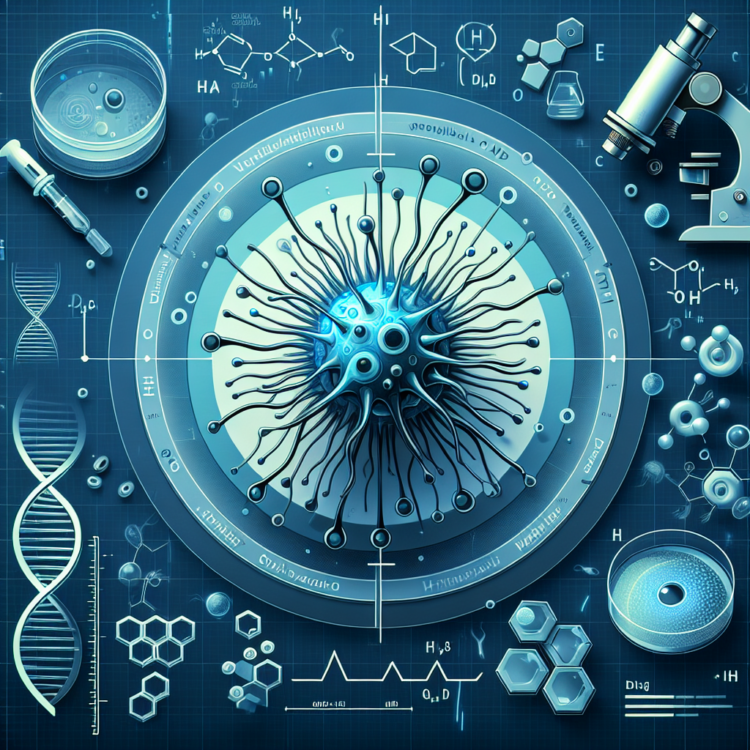Results from a new Dartmouth-led study, involving collaborators at the University of Pittsburgh and Yale University and published in the journal PLOS Biology, are providing new insights into the therapeutic potential of bacteriophage (phage) therapy for treating diseases like cystic fibrosis (CF).
Results from a new Dartmouth-led study, involving collaborators at the University of Pittsburgh and Yale University and published in the journal PLOS Biology, are providing new insights into the therapeutic potential of bacteriophage (phage) therapy for treating diseases like cystic fibrosis (CF).
A major challenge of treating people with CF—an inherited disease that causes sticky, thick mucus to build up in the lungs—are the persistent infections the disease causes which can lead to respiratory failure and death.
“Opportunistic pathogens such as Pseudomonas aeruginosa, one of the pathogens associated with the most lung function decline in CF, have become increasingly resistant to antibiotics, so we have to be creative with new ways to think about treating these infections,” explains Jennifer Bomberger, PhD, a professor of microbiology and immunology at Dartmouth’s Geisel School of Medicine, who served as senior author on the study.
“Developed many decades ago, phage therapy has seen success in Eastern Europe as an antimicrobial for difficult-to-treat infections and is increasingly being used in clinical trials and compassionate use cases through Emergency Use Authorizations in the U.S.,” says Paula Zamora, PhD, a postdoctoral associate at Geisel and first author on the study.
One of the advantages of phage therapy, which uses viruses to kill bacteria, “is that unlike antibiotics which need to be given repeatedly, it has this mechanism of self-amplification,” Zamora continues. “Phages are able to replicate by binding to bacteria and injecting their genetic material—as phages make more phages, they kill more bacteria.”
While phage therapy is thought to be relatively safe with few side effects, key gaps in knowledge related to the interactions between phages and the epithelial cells of the human respiratory tract remain.
“Since very high doses of phages are often needed to elicit a therapeutic effect, we wondered, ‘Do the host cells detect these phages, and do they create an inflammatory response that we should be concerned about?’” says Bomberger.
To find out, the investigators teamed up with researchers at Pitt and Yale,
examining interactions between a panel of Pseudomonas aeruginosa phages with therapeutic potential and human airway epithelial cells derived from a person with CF and grown in cell lines in the lab.
They determined that respiratory epithelial cells do sense and respond to therapeutic phages, and that interactions between phages and epithelial cells are heterogenous in nature—in that they are dependent on specific phage properties, as well as physiochemical features of the airway microenvironment.
“Our research also indicates that immune responses to phages could be harnessed to improve the effectiveness of phage therapy on an individual basis,” Zamora says. “We hope that our findings will lead to more studies that examine the effects that phages have on the human host.”
Considering that the effects of phages on human cells are not currently required to be evaluated as part of phage therapy design, Bomberger adds, “Our suggestion is, as people are screening phages for killing bacteria, they might also want to know what types of immune responses those phages could elicit in the host and let that play into their calculus when picking which phage to treat a patient with.”
Founded in 1797, the Geisel School of Medicine at Dartmouth strives to improve the lives of the communities it serves through excellence in learning, discovery, and healing. The Geisel School of Medicine is renowned for its leadership in medical education, healthcare policy and delivery science, biomedical research, global health, and in creating innovations that improve lives worldwide. As one of America’s leading medical schools, Dartmouth’s Geisel School of Medicine is committed to training new generations of diverse leaders who will help solve our most vexing challenges in healthcare.
# # #
Journal
PLoS Biology
Method of Research
Experimental study
Subject of Research
People
Article Title
Lytic bacteriophages induce the secretion of antiviral and proinflammatory cytokines from human respiratory epithelial cells
Article Publication Date
23-Apr-2024




